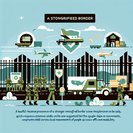
Finland’s search for skilled and semi-skilled talent received an unexpected boost on 31 October, when President Alexander Stubb led a high-level delegation to Tashkent for the first Uzbek-Finnish Business Forum. The event concluded with a headline commitment to develop joint projects worth more than €1 billion across energy, critical minerals, agriculture and digitalisation. Crucially for global-mobility managers, both governments singled out labour migration as a priority track for follow-up negotiations in 2026.
Although Finland’s current government has tightened certain pathways to permanent residence and citizenship, it is simultaneously pursuing bilateral talent pipelines to offset severe demographic pressures. Uzbek officials confirmed that work is under way on a memorandum of understanding that could mirror Finland’s existing agreements with Vietnam and the Philippines: streamlined visa processing for seasonal agricultural staff, fast-track residence permits for engineers and IT specialists, and joint vocational-training programmes that embed Finnish language tuition.
For Finnish employers, Uzbekistan represents a sizeable, youthful labour market (median age 28) with growing numbers of STEM graduates. Construction, forestry and hospitality companies—sectors facing acute shortages—have lobbied Helsinki to diversify recruitment beyond the traditional Baltic and Ukrainian pools. The forum’s outcome suggests that targeted pilot quotas could be launched as early as Q2 2026, pending parliamentary review of migration-quota regulations.
Practical next steps include the establishment of a joint Trade-Financing Fund to underwrite relocation costs and a proposed Business Council that will coordinate private-sector participation in pilot mobility schemes. Employers looking to benefit should begin mapping skills requirements now, engage with Finland’s Employment Services (which assume full integration responsibilities from January 2025) and monitor forthcoming guidance from the Ministry of Economic Affairs and Employment.
From a compliance perspective, any new corridor will still be governed by Finland’s recently-raised salary thresholds (€1 600 per month for general work permits) and stricter employer-notification rules taking effect in June 2025. HR teams must ensure assignment packages meet those benchmarks and include adequate integration support—language training remains a prerequisite for long-term retention. If successfully implemented, the Uzbek partnership could become a template for broader Central-Asian recruitment, helping Finnish industries remain globally competitive despite a shrinking domestic workforce.
Although Finland’s current government has tightened certain pathways to permanent residence and citizenship, it is simultaneously pursuing bilateral talent pipelines to offset severe demographic pressures. Uzbek officials confirmed that work is under way on a memorandum of understanding that could mirror Finland’s existing agreements with Vietnam and the Philippines: streamlined visa processing for seasonal agricultural staff, fast-track residence permits for engineers and IT specialists, and joint vocational-training programmes that embed Finnish language tuition.
For Finnish employers, Uzbekistan represents a sizeable, youthful labour market (median age 28) with growing numbers of STEM graduates. Construction, forestry and hospitality companies—sectors facing acute shortages—have lobbied Helsinki to diversify recruitment beyond the traditional Baltic and Ukrainian pools. The forum’s outcome suggests that targeted pilot quotas could be launched as early as Q2 2026, pending parliamentary review of migration-quota regulations.
Practical next steps include the establishment of a joint Trade-Financing Fund to underwrite relocation costs and a proposed Business Council that will coordinate private-sector participation in pilot mobility schemes. Employers looking to benefit should begin mapping skills requirements now, engage with Finland’s Employment Services (which assume full integration responsibilities from January 2025) and monitor forthcoming guidance from the Ministry of Economic Affairs and Employment.
From a compliance perspective, any new corridor will still be governed by Finland’s recently-raised salary thresholds (€1 600 per month for general work permits) and stricter employer-notification rules taking effect in June 2025. HR teams must ensure assignment packages meet those benchmarks and include adequate integration support—language training remains a prerequisite for long-term retention. If successfully implemented, the Uzbek partnership could become a template for broader Central-Asian recruitment, helping Finnish industries remain globally competitive despite a shrinking domestic workforce.








